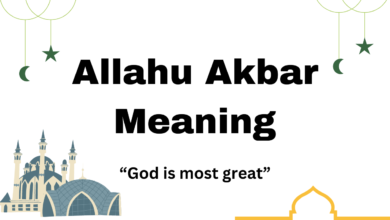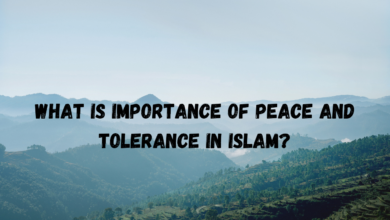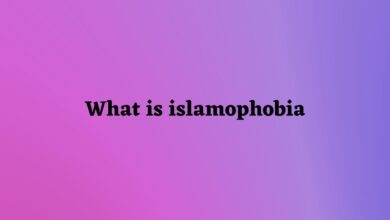The Quran
Explore the timeless wisdom and profound teachings of the holy Quran, a source of inspiration for over 1.8 billion Muslims worldwide.

Introduction:
The Quran, also spelled as Qur’an, is the holy scripture of Islam, revered by over 1.8 billion Muslims worldwide. It is believed to be the literal word of God, revealed to the Prophet Muhammad (peace be upon him) over a period of approximately 23 years in the 7th century CE. The Quran stands as a timeless guide for humanity, providing spiritual, moral, and ethical principles to enrich the lives of its followers. With more than 6000 verses, the Quran encompasses a broad range of topics, including theology, law, morality, and guidance on living a righteous life.
The Divine Revelation:
Muslims believe that the Quran is the final and complete revelation from God to humanity. The Angel Gabriel (Jibreel) is believed to have conveyed God’s message to Prophet Muhammad, who memorized and recited it to his companions and later transcribed it into writing. This process of revelation was gradual, addressing specific circumstances and issues faced by the early Muslim community while also providing universal guidance applicable to all times.
Linguistic Miracle:
One of the most remarkable aspects of the Quran is its eloquence and linguistic beauty. The Arabic language used in the it is considered by Muslims to be divinely chosen, showcasing a literary form that remains unmatched in its precision, style, and eloquence. Muslims believe that the Quran’s linguistic brilliance serves as evidence of its divine origin, as no human being could produce a work of such literary excellence.
Structure and Themes:
The Quran is divided into 114 chapters, known as Surahs, which vary in length and cover diverse themes. It begins with the opening chapter, Al-Fatiha, which is often referred to as the essence of the entire Quran, encapsulating the core message of submission to God. It addresses various themes, including the oneness of God (Tawheed), the stories of prophets and their communities, guidance on personal conduct, and societal ethics.
Guidance for Personal Development:
It emphasizes personal development and spiritual growth. It encourages believers to seek knowledge, reflect on the signs of God in the universe, and ponder on the deeper meaning of life. Through prayer and remembrance of God, Muslims are reminded of their purpose on earth and the importance of leading a righteous and compassionate life.
Ethical Principles and Morality:
The Quran sets forth a comprehensive ethical framework that governs all aspects of human behavior. It emphasizes the importance of justice, honesty, compassion, and kindness towards all living beings. Muslims are encouraged to uphold moral values and strive to be mindful of their actions, knowing that they are ultimately accountable to God.
Social Justice and Human Rights:
The Quran advocates for social justice and the protection of human rights. It denounces oppression, exploitation, and inequality, and promotes the fair treatment of all individuals, regardless of their background. The Quranic teachings on social welfare, charity, and caring for the vulnerable establish a sense of community and responsibility towards others.
Preservation and Authenticity:
One of the most remarkable aspects of the Quran is its unparalleled preservation. Muslims believe that the Quran we have today is the same as the one revealed to Prophet Muhammad more than 1400 years ago, without any additions, deletions, or alterations. The Quran’s preservation is seen as a divine promise by God, ensuring that His guidance remains accessible to all generations.
Academic and Intellectual Impact:
It has not only been a spiritual guide but also a subject of academic interest. Scholars, both Muslim and non-Muslim, have studied its language, themes, and impact on societies throughout history. The Quran has inspired diverse fields, including literature, poetry, philosophy, and science, contributing to the advancement of human knowledge and culture.
Conclusion:
It continues to be a source of inspiration, guidance, and solace for billions of Muslims around the world. Its profound teachings have left an indelible mark on history, shaping civilizations and societies across centuries. As a timeless guide for humanity, it offers a path towards personal development, ethical conduct, and social justice, encouraging individuals to strive for a better world based on compassion, understanding, and harmony. Whether one is a devout Muslim or a curious seeker of knowledge, the Quran remains a profound and significant scripture that deserves exploration and contemplation.
What is the Quran?
The Quran is the holy book of Islam, believed by Muslims to be the literal word of God. It was revealed to the Prophet Muhammad (peace be upon him) over a period of approximately 23 years in the 7th century CE.
What language is the Quran written in?
The Quran is written in classical Arabic, considered by Muslims to be the language chosen by God for His final revelation.
How many chapters and verses are in the Quran?
The Quran consists of 114 chapters, known as Surahs, and more than 6,000 verses, known as Ayahs.
What are the major themes of the Quran?
The Quran covers a wide range of themes, including theology, morality, guidance for personal conduct, stories of prophets and their communities, social justice, and the oneness of God (Tawheed).
What makes the Quran a linguistic miracle?
Muslims believe that the Quran’s linguistic beauty and eloquence are beyond human capacity, serving as evidence of its divine origin.
How is the Quran preserved?
The Quran is believed to be miraculously preserved by God, ensuring that it remains unchanged since its revelation more than 1400 years ago.
Is the Quran accessible to non-Arabic speakers?
Yes, there are translations of the Quran available in various languages, making it accessible to non-Arabic speakers. However, it is essential to note that translations may not fully capture the linguistic nuances of the original Arabic text.
What is the significance of Al-Fatiha (the opening chapter)?
Al-Fatiha is considered the essence of the Quran and is recited in every unit of Islamic prayer. It is a prayer seeking guidance and supplication to God.
How does the Quran guide personal development?
It encourages believers to seek knowledge, reflect on the signs of God, and live a righteous and compassionate life through prayer and remembrance of God.
What ethical principles does the Quran emphasize?
It promotes principles such as justice, honesty, compassion, kindness, and respect for all living beings.





